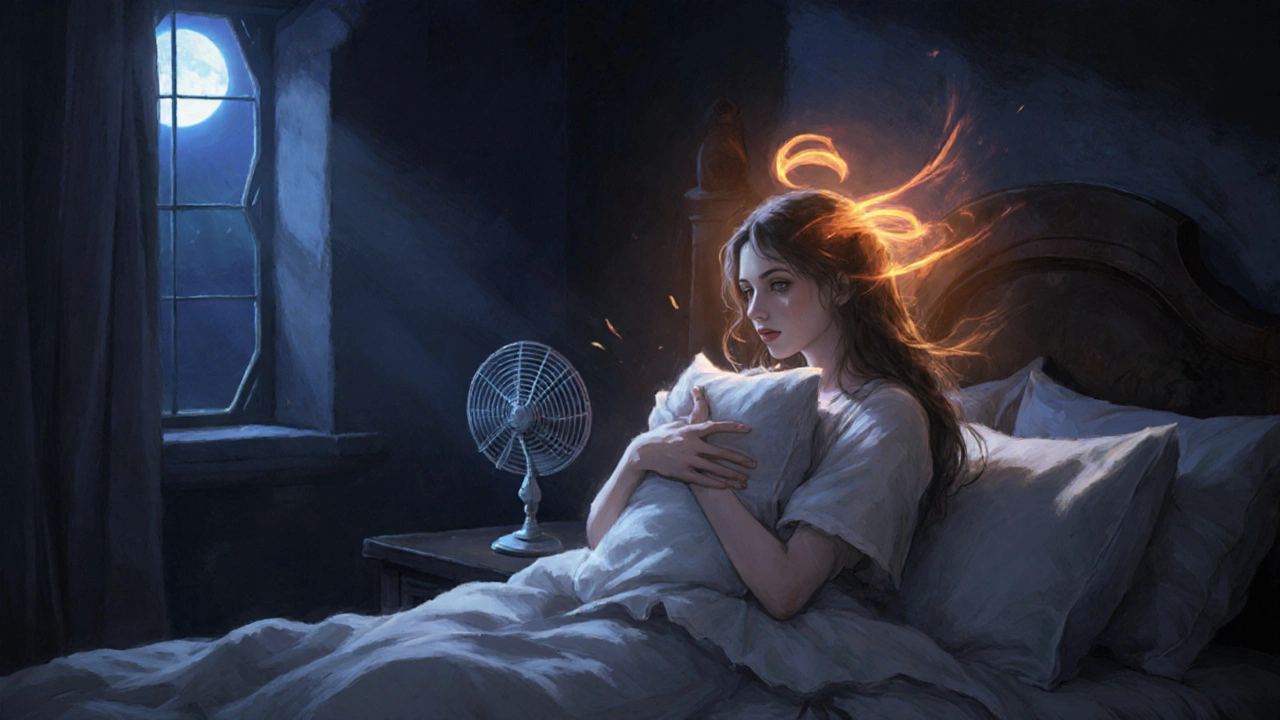Menopausal Sleep Problems: Causes, Relief, and What Works
When menopausal sleep problems, disturbed sleep patterns triggered by hormonal shifts during menopause, often involving hot flashes, night sweats, and insomnia. Also known as menopause-related insomnia, they affect up to 60% of women going through this transition. It’s not just about tossing and turning—it’s waking up drenched, heart racing, then staring at the ceiling for hours because your body won’t shut down. This isn’t normal aging. It’s biology, and it’s fixable.
At the core of these sleep issues are hormone changes, fluctuations in estrogen and progesterone that disrupt the body’s temperature control and sleep-wake cycle. Estrogen helps regulate body heat, and when it drops, your thermostat goes haywire. That’s why hot flashes, sudden waves of intense heat, often followed by sweating and chills. hit at night, soaking your sheets and jolting you awake. Progesterone, which has a calming, sleep-promoting effect, also declines. No wonder you feel wired when you should be asleep.
It’s not just hormones. insomnia during menopause, persistent difficulty falling or staying asleep linked to menopause. often gets worse if you’re stressed, drinking caffeine after noon, or scrolling in bed. Anxiety spikes during this phase too—worrying about aging, health, or even whether you’ll ever sleep again creates a loop that keeps your brain active when it should be resting.
Some women find relief with lifestyle tweaks: cooler rooms, cotton pajamas, cutting out alcohol, or a 10-minute wind-down routine before bed. Others need more. Studies show that low-dose hormone therapy can cut night sweats by 75% in many cases—but it’s not for everyone. Non-hormonal options like certain antidepressants (low-dose paroxetine, for example) or gabapentin have helped women who can’t or won’t use hormones. Even magnesium or melatonin might make a difference, though results vary.
You’ll find real stories here—not theory. Posts cover what actually works: how one woman stopped waking up soaked by switching to a cooling mattress pad, why a daily walk at sunset improved her sleep more than any pill, and how avoiding spicy dinners after 6 p.m. cut her night sweats in half. You’ll also see what doesn’t work—like those expensive herbal blends that promise miracles but deliver nothing.
This isn’t about quick fixes. It’s about understanding your body’s changes and finding practical, science-backed ways to reclaim your nights. Whether you’re just starting to notice the sleep troubles or you’ve been fighting them for years, the solutions below are real, tested, and tailored to women like you.
Menopause and Sleep: Practical Tips for Better Rest
Discover why menopause disrupts sleep and learn practical, evidence‑based tips-from cooling your bedroom to hormone therapy-to finally enjoy uninterrupted rest.






